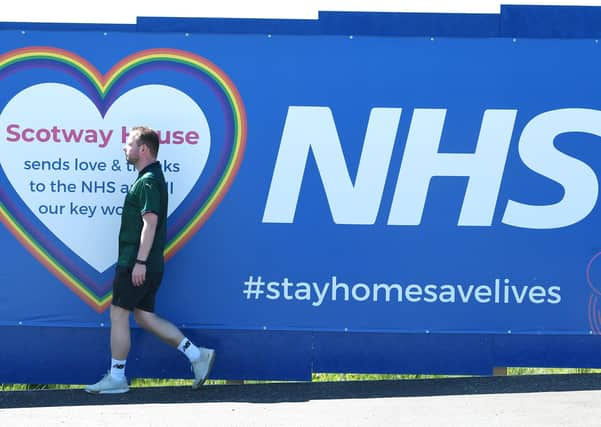Coronavirus: What do we do with these idiots who won’t self-isolate? – Bill Jamieson


What percentage of the population are idiots and morons? It’s not the most pleasant question to ask at this time, but ask it we must.
I’m talking about the hordes of those who besieged beaches and parks at the weekend oblivious to all advice. The ones sitting cheek by jowl in pubs right up to the moment they were closed on Monday night. The ones oblivious to constant warnings on social distance.
Advertisement
Hide AdAdvertisement
Hide AdThey largely comprise people who rarely listen to or watch the news, who don’t read newspapers and would struggle to name more than two government ministers.
About ten to 15 per cent of the population, I would say.
Now idiots and morons are offensive words, so I will self-correct and refer to them as The Disconnected (though many are only too well connected to mobile phones and social media). Some may have ailments and are too poorly to deal with current affairs.
But many behave as if the real world with its rules and restraints need not apply to them. You can quickly arrive at a very bleak view of life in Britain. And yet, there is the other side to this dark picture: the 80 per cent and more who have followed the advice, staying indoors and emptying the streets of towns and cities across the land.
Yesterday the front page of The Scotsman carried a stunning photograph of an utterly deserted High Street and Royal Mile at the heart of in Edinburgh. It is a picture that will haunt for years. Not even Martin Scorsese in some apocalyptic Netflix disaster movie could have captured this.
And every day brings more of the same, a civic lockdown far worse than in wartime, and with harrowing reports of the unfolding crisis in the NHS. In some hospitals, it looks to be turning into a Coronavirus Culloden. Army trucks are now brought in to help deliver emergency supplies while social care services are stretched to breaking point.
Huge issue of civil liberty
But tens of millions have calmly complied with official warnings and made all manner of lifestyle changes in a manner thought impossible other than in wartime. But a time of war it is. Some 27 million people tuned in to watch the Prime Minister’s broadcast on Monday night – testimony to the scale of connection and engagement across the country.
So how do we reach those who seem to be still oblivious – other than resort to police enforcement and fines – these on people least able to pay? This is a huge issue for civil liberty and the extension of the powers of the state. And it raises the most searching questions as to whether after such a breach those freedoms we thought inviolable can ever be fully restored.
It’s near impossible to counter the argument that such restrictions are needed to save lives. But where exactly is the point at which they are invoked while maintaining mass public support? This is a moment of national self-definition that will impact on our politics, thinking, consciousness and culture for a generation – just like the war.
Advertisement
Hide AdAdvertisement
Hide AdBut is minimising the death toll really the overriding aim of policy? The death rate from seasonal flu in the UK is around 0.1 per cent and an average of 17,000 a year die as a result. Yet despite this toll, there is a marked reluctance to impose the draconian measures we have adopted against coronavirus.
Opposition to restrictions in movement and behaviour may now become less easy to defend. As I pointed out here the other week, we comply with measures to combat coronavirus to curb deaths and contain further strains on the NHS, while we tolerate the incidence of 1,238 alcohol-related deaths in Scotland and 1,187 drug-related fatalities. High-risk drinking is reckoned to cause 686 hospital admissions a week, so why not more effective action on these behaviours? If it is a question of scale – for example, two per cent of fatalities among those affected, or three per cent, or five per cent, where is the line to be drawn?
Sunset clause
All the talk in recent years has been about rights – individual and civil. But individual liberties can so quickly be sacrificed. As the UK Supreme Court Justice Jonathan Sumption commented in his BBC Reith Lectures last year, it is “one of the supreme ironies of modern life: We have expanded the range of individual rights while at the same time drastically curtailing the scope for individual choice.”
One measure may be to put a ‘sunset clause’ on the extraordinary interventions by government in the past two weeks. Another measure may be behavioural – showing pics of re-stocked supermarket shelves for example, rather than ones stripped bare – as these may be acting to heighten public panic. And pictures are worth 1,000 words – those of deserted Edinburgh may do more than any official exhortation to do what everyone else is doing – and stay indoors.
Comments
Want to join the conversation? Please or to comment on this article.